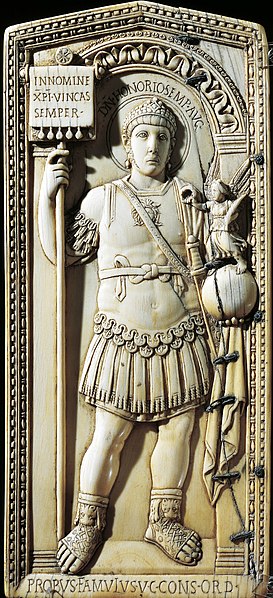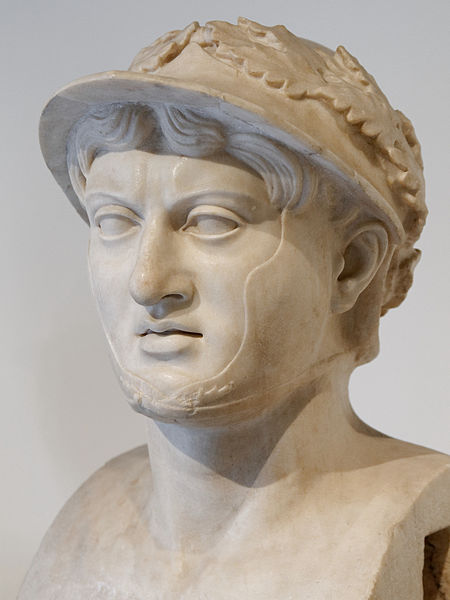A consul was the highest elected public official of the Roman Republic. Romans considered the consulship the second-highest level of the cursus honorum—an ascending sequence of public offices to which politicians aspired—after that of the censor, which was reserved for former consuls. Each year, the Centuriate Assembly elected two consuls to serve jointly for a one-year term. The consuls alternated each month holding fasces when both were in Rome. A consul's imperium extended over Rome and all its provinces.
Gold coin from Dacia, minted by Coson, depicting a consul and two lictors
Image: Diptych of Honorius (body)
Image: Diptych of Constantius III
The Roman Republic was the era of classical Roman civilization beginning with the overthrow of the Roman Kingdom and ending in 27 BC with the establishment of the Roman Empire. During this period, Rome's control expanded from the city's immediate surroundings to hegemony over the entire Mediterranean world.
Roman Republic
The "Capitoline Brutus", a bust possibly depicting Lucius Junius Brutus, who led the revolt against Rome's last king and was a founder of the Republic.
Bust of Pyrrhus, found in the Villa of the Papyri at Herculaneum, now in the Naples Archaeological Museum.
Coin of Hiero II of Syracuse







